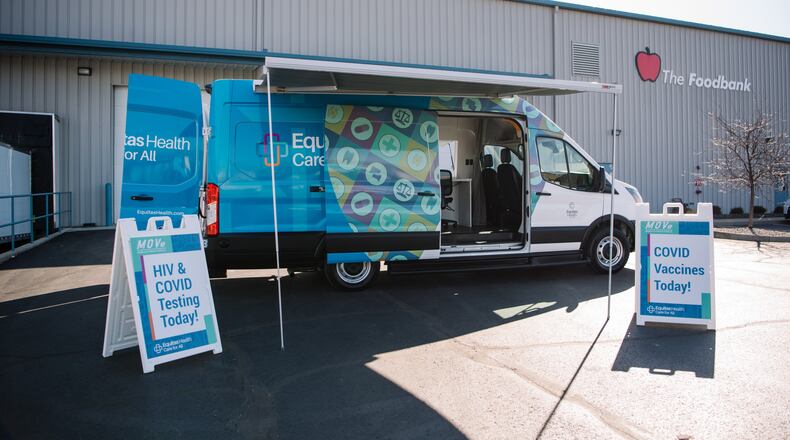Around 25,000 Ohioans are living with HIV, or human immunodeficiency virus, the virus that can cause AIDS.
Advocates with the Ohio Health Modernization Movement, which is organizing to change state HIV laws, marked World AIDS Day on Dec. 1 by introducing a resolution with Rep. Beth Liston, D-Dublin, recognizing the day.
“You can either prosecute or treat HIV, you can’t do both,” said Bryan Jones, of Cleveland, who is living with HIV and has led mobilization efforts for decades in Ohio around HIV decriminalization.
The resolution includes a statement that stigma and HIV criminalization laws are a deterrent to prevention. Zach McCune, association director of public policy for Equitas Health, said the resolution is a chance to educate lawmakers about decriminalization.
McCune, who like Jones is with the Ohio Health Modernization Movement, said they hope to introduce legislation in 2022 to address the HIV laws, though they are still working on details and sponsors.
Treatment and prevention options have improved since the epidemic first began. With medication, people can maintain an undetectable level of the virus, thus presenting no risk of transmitting the virus sexually, according to Public Health - Dayton & Montgomery County.
Also, pre-exposure prophylaxis (PrEP) is a daily regimen proven to be highly effective in preventing HIV infection for individuals at high risk, reducing the risk of acquiring HIV by up to 97%, according to Public Health.
Yet even though advances allow many people living with HIV to have sex with little to no risk of transmission, in Ohio everyone knowing their positive HIV status is required to disclose it prior to sex, or in some cases face up to eight years in prison.
This is stigmatizing, discourages people from getting tested to know their status, and also out of line with how transmission works, advocates say.
“We’re still holding on to these laws based on archaic information,” Jones said.
In 2020, 796 individuals were living with HIV in Montgomery County and 784 had a diagnosis of AIDS, according to Public Health - Dayton & Montgomery County.
In region 9 (Clark, Darke, Greene, Miami, Montgomery and Preble counties), the HIV incidence rate through September 2021 (5.3 per 100,000) is slightly higher compared to this time last year (4.8).
Through September 2021, Montgomery County has the largest number of new HIV cases (36) followed by Clark (11). Through September 2021, Clark County has the highest HIV incidence rate (8.2 per 100,000) followed by Montgomery (6.8).
Free testing available
Do you know your status? The CDC recommends the following:
• All adults and adolescents from ages 13 to 64 should be tested at least once for HIV.
• All pregnant women should be tested for HIV along with other sexually transmitted infections.
• Sexually active gay and bisexual men may benefit from more frequent HIV testing (every 3 to 6 months).
• Anyone who has unsafe sex or shares injection drug equipment should get tested for HIV at least once a year.
The Ohio HIV/AIDS Prevention Committee of Region 9 (Clark, Darke, Greene, Miami, Montgomery and Preble Counties) urges everyone to know their status and get tested. For testing sites near you, call 800-CDC-INFO (232-4636), visit http://hivtest.cdc.gov, text your ZIP code to KNOW IT (566948) or call 937-496-7133.
About the Author

